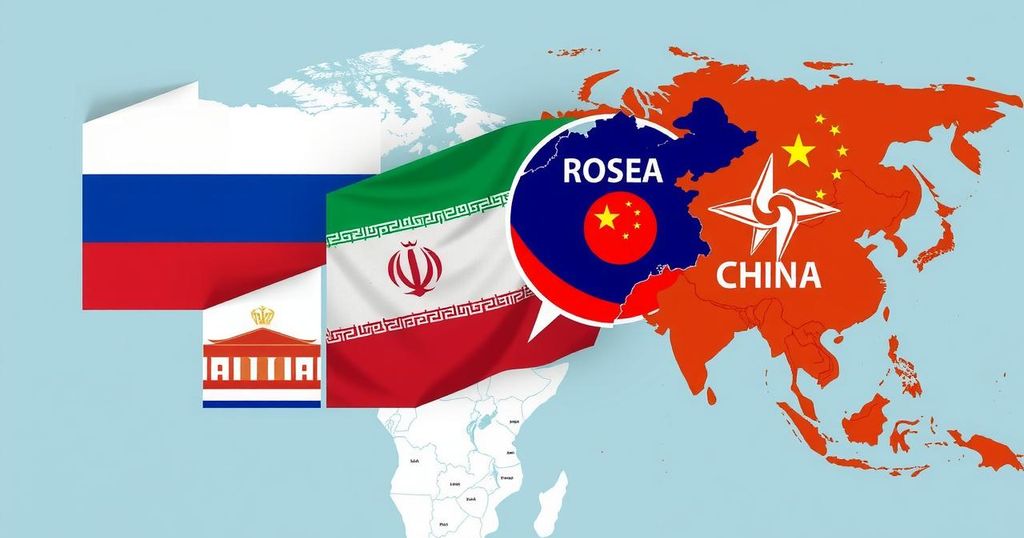Biden’s Strategic National Security Initiative Ahead of Trump’s Inauguration
President Biden is urging U.S. security agencies to devise new strategies against the growing alliances of Russia, Iran, North Korea, and China, as outlined in a recent national security memorandum. This plan emphasizes the interplay between these nations, aiming to prepare for potential coordinated threats while offering a flexible framework for the incoming Trump administration to consider.
President Joe Biden is proactively directing U.S. national security agencies to develop new strategies addressing the increasingly intricate alliances among Russia, Iran, North Korea, and China prior to Donald Trump’s inauguration. A memorandum issued by Biden on national security indicates a reciprocal agreement where Iran provides support to Russia in Ukraine, while Russia supplies military aircraft, missile defense systems, and space technology to Iran. Concurrently, ties between Russia and North Korea are strengthening, with Russia allegedly furnishing fuel and technology to North Korea while recognizing its nuclear capabilities. Additionally, the administration highlights joint Russian and Chinese patrols in the Arctic as part of this cooperative trend.
The memorandum also outlines the need for U.S. governmental divisions to shift focus from region-based strategies to a more interconnected approach that addresses issues linking these four nations, which stretch across Europe and Asia. While the document is designed to be adaptable for the incoming Trump administration, senior officials emphasize that it does not constrain the new administration’s policy choices but rather provides options and insights for immediate action.
Challenges ahead include the need for coordinated sanctions and export controls against these nations to mitigate potential retaliatory repercussions, as well as effectively managing concurrent crises involving multiple states, especially in light of North Korean military support for Russia. Officials remark on the learning dynamics among adversarial nations, yet note limits to their cooperation, particularly regarding the situation in Syria, where Russia and Iran have not effectively assisted their ally, Bashar al-Assad. The evolving scenarios present significant considerations for China regarding its commitment to this emergent coalition and the prospects it may entail.
In the current geopolitical landscape, the relationships among Russia, Iran, North Korea, and China have evolved significantly, prompting the Biden administration to reassess U.S. national security strategies. As these nations forge closer ties, especially in military and technological domains, the potential for coordinated actions against U.S. interests grows. This development necessitates a proactive response that not only addresses individual state behaviors but also the collective dynamics that could challenge U.S. influence globally. The strategic memorandum issued by President Biden aims to prepare for these complexities by restructuring governmental approaches to security and foreign policy while still allowing flexibility for the incoming administration.
In conclusion, President Biden’s initiative to redefine U.S. national security strategies aims to tackle the increasingly complex alliances among Russia, Iran, North Korea, and China. By drafting a memorandum that seeks to facilitate coordinated responses and prepare for potential challenges, the administration is taking essential steps to address the multifaceted nature of contemporary geopolitical relations. As the new administration prepares to assume office, the effectiveness of these strategies will depend on their adaptability and implementation to navigate the shifting global landscape effectively.
Original Source: www.usnews.com








Post Comment